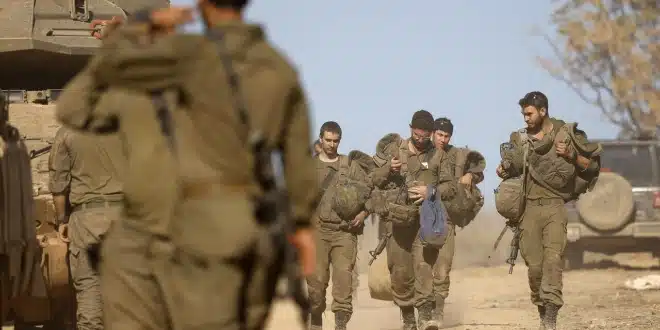A prominent U.S. congressman visiting Lebanon has expressed Washington’s intention to support Israel’s full withdrawal from southern Lebanon—if the Lebanese Armed Forces (LAF) can demonstrate comprehensive national control.
Speaking during a visit to Beirut, California Republican Rep. Darrell Issa emphasized that the U.S. would advocate for a complete Israeli pullout, contingent on the LAF proving its capability to maintain order throughout the country. “We will push hard to make sure there is a full withdrawal, and I’ll work with the Israelis on this, once the LAF can show it has control over all of Lebanon,” Issa stated.
Context: Cabinet Talks and Hezbollah’s Disarmament
Issa’s comments came ahead of a Lebanese cabinet session focused on a controversial and politically sensitive proposal—disarming Hezbollah. The government recently directed its military leadership to draw up a comprehensive plan aimed at ensuring that by year’s end, only official state forces possess weapons. This policy aligns with mounting U.S. and Israeli demands to curb the power of the Iran-backed group.
However, the move has triggered sharp backlash from Hezbollah, which has openly rejected the government’s directive. In a swift response to Tuesday’s cabinet meeting, the organization accused Lebanese leaders of succumbing to foreign pressure and declared it would “act as though the decision doesn’t exist.”
Disputes Over Timing and Conditions
One point of contention remains unresolved: whether Israeli forces should begin their withdrawal before Hezbollah begins disarming, or whether disarmament must come first. Issa did not provide clarity on this sequencing during his remarks.
Hezbollah, for its part, insists that no disarmament talks can take place until Israel relinquishes control over five disputed hills within Lebanese territory and ceases its near-daily airstrikes, which have reportedly resulted in hundreds of casualties—mostly Hezbollah fighters—since a U.S.-brokered truce ended the most recent round of fighting last November.
Ongoing Tensions Since Ceasefire
Since the cessation of hostilities, which followed more than a year of intermittent conflict and a two-month-long war, tensions have remained high. Israel accuses Hezbollah of rebuilding military infrastructure near the border and claims its presence is vital to protecting national security. Hezbollah has acknowledged at least one cross-border attack since the ceasefire.
Issa’s Perspective on National Sovereignty
A Lebanese-American himself, Issa underlined the importance of national sovereignty and the central role of the Lebanese Armed Forces in preserving it. “We must help all Lebanon’s neighbors understand that the LAF alone holds the authority to make military decisions,” he said. He added, “If something goes wrong, the responsibility will fall on the shoulders of the LAF.”


